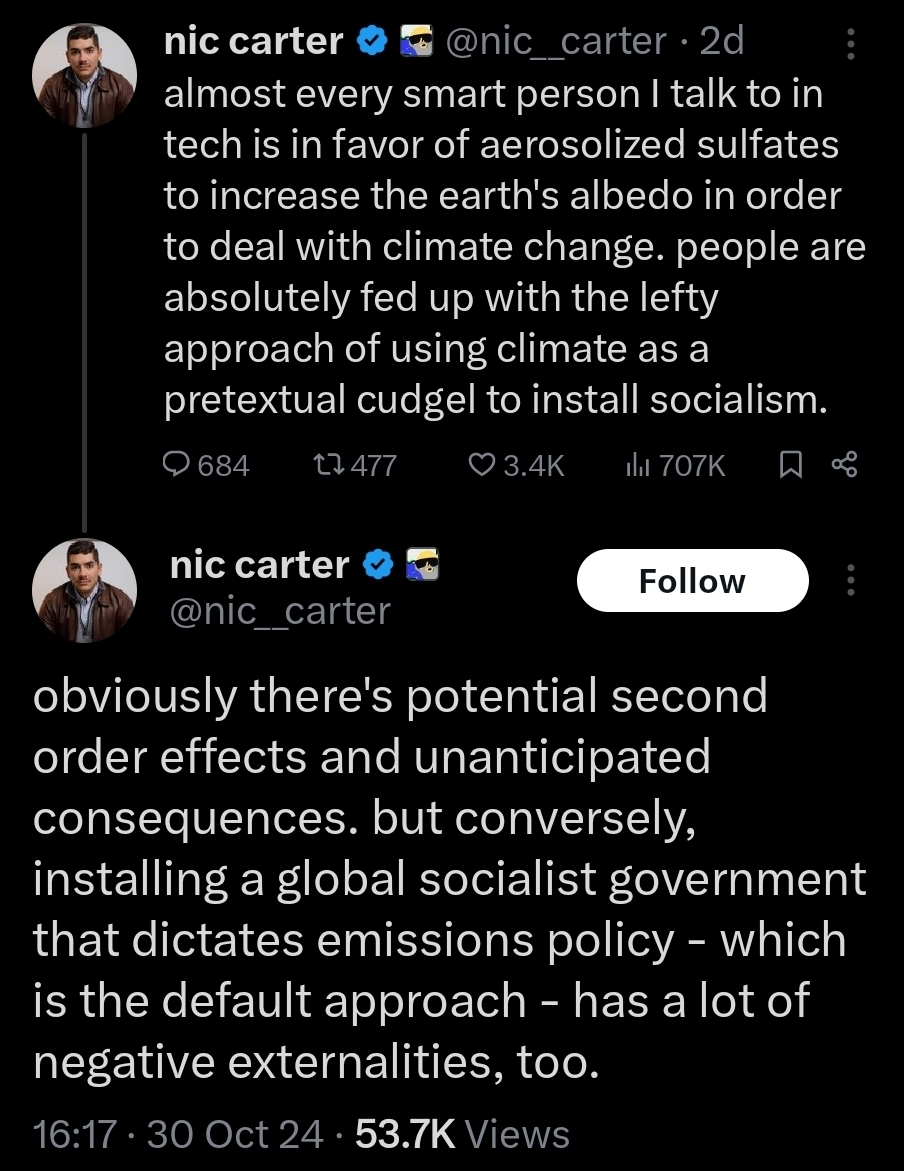view the rest of the comments
the_dunk_tank
It's the dunk tank.
This is where you come to post big-brained hot takes by chuds, libs, or even fellow leftists, and tear them to itty-bitty pieces with precision dunkstrikes.
Rule 1: All posts must include links to the subject matter, and no identifying information should be redacted.
Rule 2: If your source is a reactionary website, please use archive.is instead of linking directly.
Rule 3: No sectarianism.
Rule 4: TERF/SWERFs Not Welcome
Rule 5: No ableism of any kind (that includes stuff like libt*rd)
Rule 6: Do not post fellow hexbears.
Rule 7: Do not individually target other instances' admins or moderators.
Rule 8: The subject of a post cannot be low hanging fruit, that is comments/posts made by a private person that have low amount of upvotes/likes/views. Comments/Posts made on other instances that are accessible from hexbear are an exception to this. Posts that do not meet this requirement can be posted to !shitreactionariessay@lemmygrad.ml
Rule 9: if you post ironic rage bait im going to make a personal visit to your house to make sure you never make this mistake again

I did a two-year post-doc in a climate modeling lab at a major research university studying exactly this proposal. I have peer-reviewed publications on it. I cannot overstate what a bad idea it is. It would kill--at minimum--tens of millions of people, and set off the worst refugee crisis the world has ever seen as global precipitation patterns shifted--and those are the effects we know about. Once we start it, we will have to run it indefinitely or incur absolutely apocalyptic snap-back temperature increases.
Still, I will be absolutely flabbergasted if we don't implement this sometime in the next 15 years. It's cheap, effective at controlling temperature increases, and will let us continue to kick the can down the road for meaningful climate action.
What is the mechanism for this?
Shifting precipitation patterns.
Drought in moist regions, floods in arid regions, massive shifts in farming methods that would be necessitated by famine/crop failure, drying of wells and rivers that provided drinking water.
Surely this is the type of climate change impact that wouldnt affect the continental United States though? Right??
It would actually probably be a net positive for the US, at least in most places (and at least if you ignore the blowback from the rest of the world). We're less likely to get hit by major precipitation changes, have the technology to shift our agriculture practices to compensate for what changes we do see, and the capital to adapt. A significant (>2°C) temperature reduction is likely to have enough positive effects for us to make it at least a wash. The same is not true for the rest of the world. We all know how much that matters to us, though. This is part of why I'm not optimistic about us keeping this particular genie in the bottle.
I'm in Colorado and my house already has been within a mile of a wildfire due to increased drought from climate change, as well as being within 10 miles of catastrophic flooding.
Climate is everywhere.